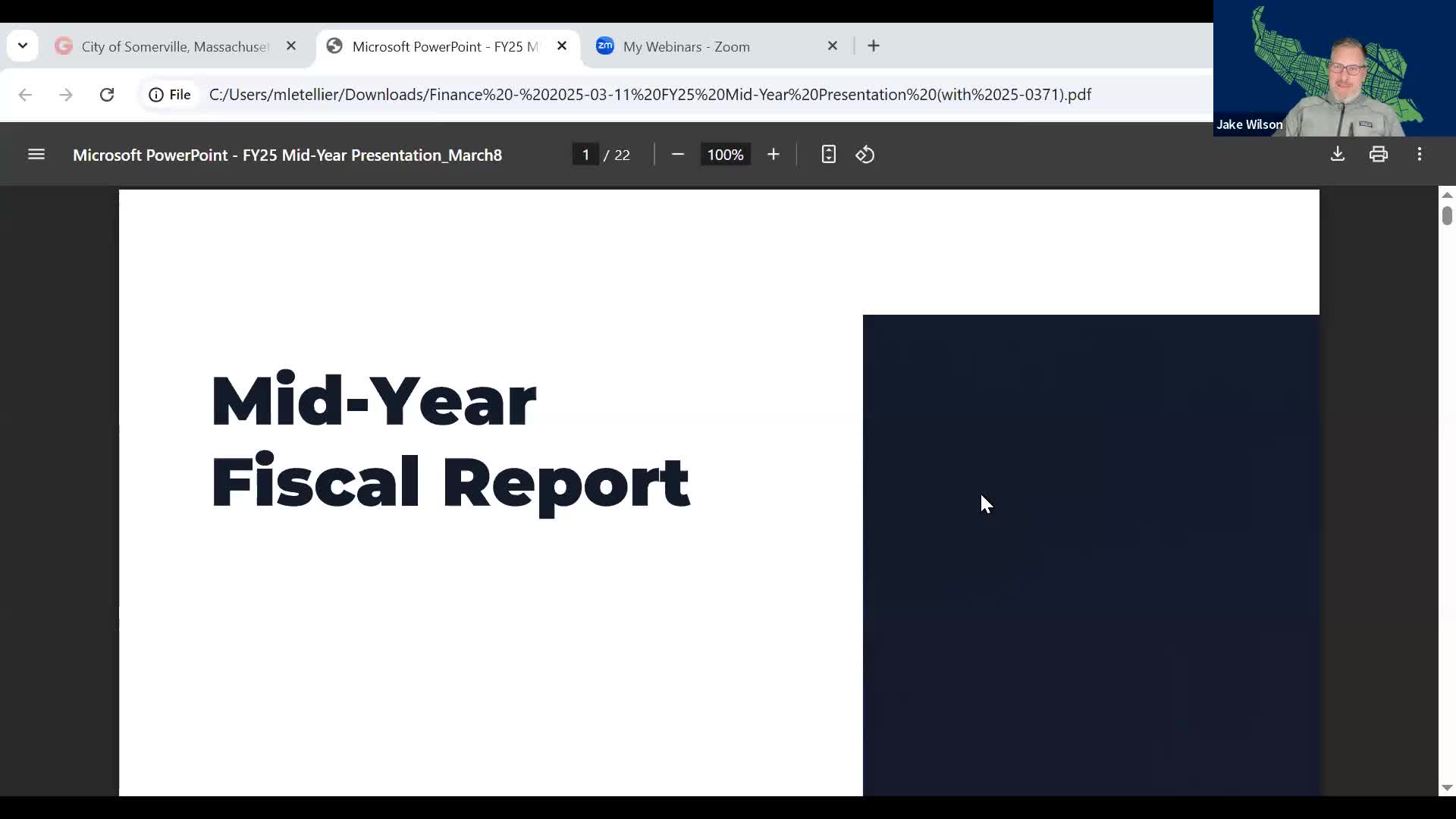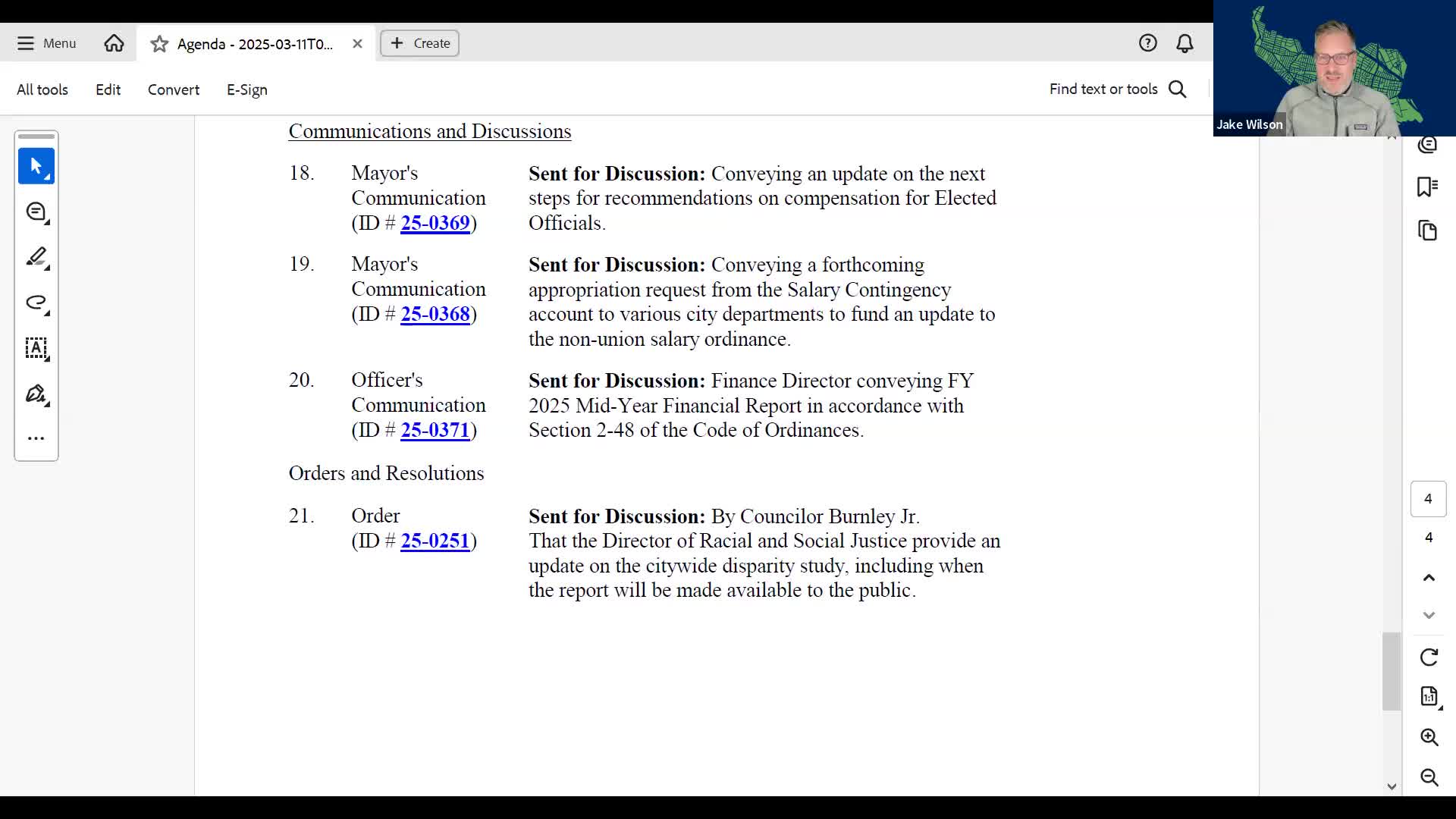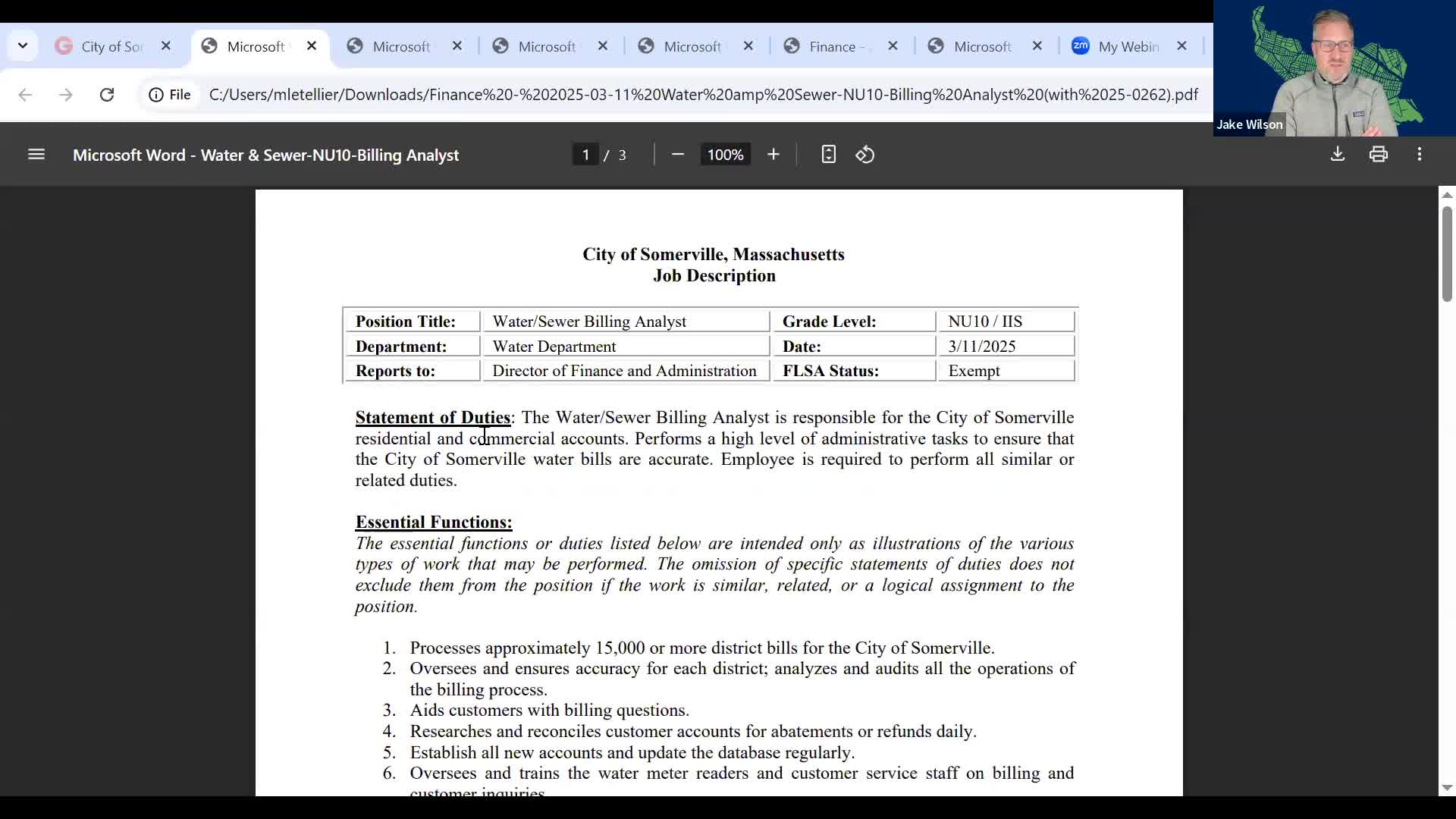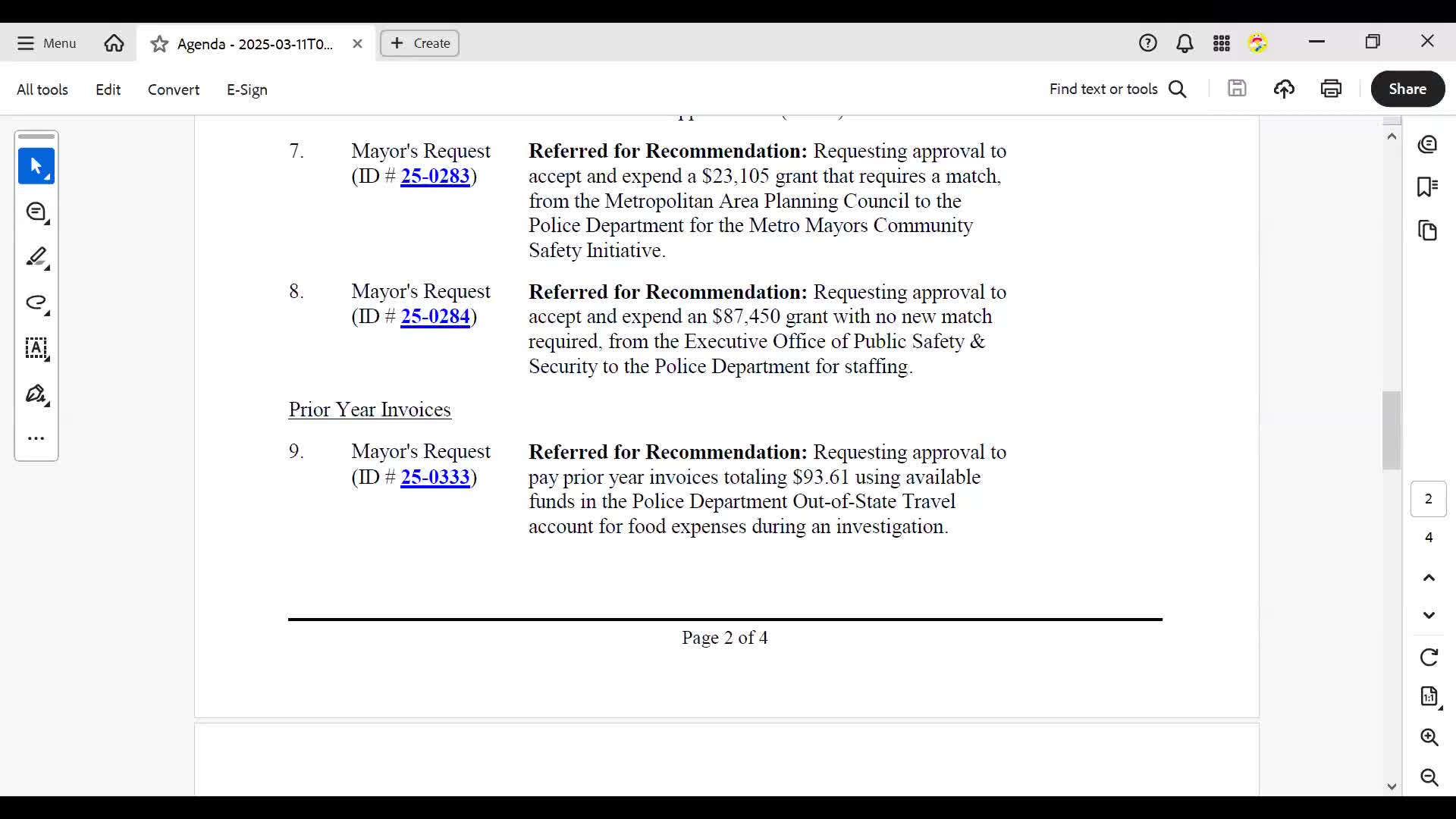Article not found
This article is no longer available. But don't worry—we've gathered other articles that discuss the same topic.

Finance director: Somerville faces tighter FY26 outlook after midyear review; health insurance and pensions drive costs

City staff present nonunion classification and compensation plan; committee keeps item in committee for follow-up

Finance committee refuses midyear approval for three Water & Sewer positions amid concerns about timing and leadership

